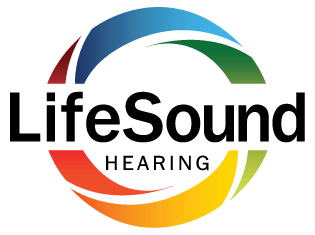Musicians rock. They bring so much happiness to our lives with their performances. The drawback is that music is almost always loud, in fact, many people like it better that way. Since musicians expose themselves to loud music frequently, their hearing is at greater risk of being damaged.
As you grow older, you’ll still want to be able to enjoy your favorite songs whether you’re a musician or not. For musicians, safeguarding their hearing is the key to a long and successful career. Ear protection is also key to a lifetime of musical fulfillment for everyone.
Sometimes it can be surprising how loud music can get
Most people would say that a jet engine is really loud.
But what about music? If you ask somebody whether an acoustic guitar or a lone violin is loud, they might not answer so quickly. Usually, when they hear the answer, they’re pretty surprised: That can also be loud music! Even classical music can get to fairly loud volumes that can easily damage your hearing.
A violin, for example, can produce sounds in excess of 90 dB. That’s around as noisy as a leaf blower. To put that into context, the European Union regulations dictate that any work environment noisier than 85 dB will require the use of hearing protection.
And if you’re working with music on a daily basis, constant exposure to that kind of volume, particularly without hearing protection, can severely harm your hearing over time.
How can you protect your hearing?
Okay, now you recognize that musicians need to safeguard their hearing (particularly if they want to go on rocking out for years to come). So what can musicians do to protect their hearing and still enjoy the music they love so much?
Well, here are a couple of easy things musicians can do:
- Take breaks: Much like any part of your body, your ears can become fatigued and may need to get a little rest. So give yourself “hearing breaks” frequently. This will help stop your ears from becoming overpowered with noise (and damage). Regarding hearing, how long you’re exposed is almost as significant as how loud it is. Taking breaks can be the difference between just enough stimulation and too much!
- Track your volume: Everybody remembers the old saying “knowledge is power”. So it follows that you should always know what volume of sound you’re subjecting your ears to. Usually, this is as simple as keeping track of your volume settings on amps and receivers. But you can also track day-to-day volume levels of environmental noises using a volume meter app that you can download on your cellphone. You will want to make a few changes if the meter regularly reads above 85 dB.
hearing protection is important
Using ear protection is the number one most effective way to protect your hearing. Many musicians are reluctant to use hearing protection because they’re worried it will effect the clarity of sound they hear, in addition to muting the volume. But depending on what type of hearing protection you use, that might not always be accurate.
- Ear plugs made specifically for musicians: Most individuals are most likely familiar with disposable ear plugs. They don’t always fit perfectly, but they do reliably stop a lot of sound. They’re inexpensive, easy to come by, and easy to dispose of. And they aren’t ideal for musicians. But earplugs just for musicians are also available for a little more money. A special material and state-of-the-art engineering are used to help these earplugs fit snuggly in the ear and decrease external noise by about 20% while preserving the audio fidelity. This solution is perfect for musicians who require a light to moderate level of protection (and who don’t have a lot of money to invest in earplugs, or are likely to lose them).
- Electronic earplugs: Electronic earplugs work in essentially the same way as high-quality, non-electronic earplugs. Most of the sound will be blocked by the earplug itself. What you hear will instead be routed in by the earplug itself. This option is perfect for individuals who work in particularly noisy settings, and who are looking for more options in terms of volume control.
- In-ear monitors: Electronics are a significant part of modern music. A device, known as an in-ear-monitor, is put in your ear and passes signals in electronically. Most monitors are little speakers that fit snugly and block out the majority of sound while playing sounds you want to hear at safe volumes. So you regulate the volume level and can hear sound accurately and clearly. In-ear monitors are useful for people who work primarily with electronically amplified instruments.
Safeguard your career by protecting your hearing
It’s better to start safeguarding your hearing early, before any substantial harm occurs. Everybody can protect their hearing and future with ear protection options at all price points. Keep in mind, hearing protection for a musician is an investment in your career. By doing so, you will be able to enjoy creating music for as long as you want to.
Contact us so we can help you get started.
[blogcta]

